The UN confirms nearly 500 deaths and 120 hostages in Iraq protests
- From October 2019 to 21 March 2020, the UN has reported 490 deaths, 7,793 injuries and 123 kidnappings of minors. The protests began in October 2019 in Iraq with the aim of resigning the government, dissolving Parliament and reforming the Iraqi political system. Following the resignation of the former British Prime Minister, the new Prime Minister, Mustafa Al Kadhimi, has promised that he will analyse police abuse in the country.

The tension began in Iraq from October until in December the then Prime Minister, Adel Abdel-Mahdi, resigned as president of the country. The demonstrations were in response to the brutal police repression, and in the UN report released on Saturday, the UN has called Iraq to account.
After a year and a half of political paralysis, the new Prime Minister, Mustafa Al Kadhimi, has announced that he will look at cases of police abuse and paramilitary groups that were violent to protesters. In addition, it has promised to liberate the imprisoned activists.
Protracted political crisis
Since 2003, the country has been in the midst of a geopolitical crisis. The United States Army invaded the country and expelled Saddam Husseim, an Arab, Pan-Arab and Arab socialist nationalist, to convey "his freedom" to the people.
Until 2005, a transitional government was formed in which they were governed by US forces. Later came the governments that defended the interests of the Western powers. Tension increased and between 2014 and 2017 there was a civil war.
The 2019 protests forced the government to take another step, as it promoted the resignation of the Prime Minister. However, the UN has denounced that police violence with the help of the United States since the beginning of the invasion has been excessive. Iraqi human rights groups estimate that there have been more cases than those provided, with 550 deaths at the Independent High Commissioner for Human Rights in Iraq (IHCHR). The Iraq War Crimes Documentation Centre estimates the maximum death toll at 660.
Ospitaletik irten eta berehala prentsaurrekoa eman du Iker Aranak, Errekaldeko gaztetxearen aurrean. Gaztetxearen desalojoan ertzainek "neurrigabeko indarkeria" erabili zutela salatu du, eta salaketa hurrengo egunetan aurkeztuko du.
Azken astean ezagutarazi moduan, Eusko Jaurlaritzaren Balorazio Batzordeak txosten banatan aitortu ditu estatuaren biktima gisa. Justizia sailburuak ekitaldi pribatu banatan entregatu dizkie dokumentuak.
Rosa Zarra Ertzaintzaren pilotakada baten ondorioz hil zela da Eusko Jaurlaritzako Poliziaren Biktimen Balorazio Batzordeak atera duen ondorioa, Berria-k jakinarazi duenez. Orain arte, Ertzaintzak beti egin dio uko bertsio horri, eta Rosa Zarra berak zuen gaixotasunaren ondorioz... [+]
Lau agenteak lesio-delituengatik ikertzen ari dira eta horrek galarazten du 2024ko amnistia aplikatzea. Polizia horietako batek, ustez, gomazko bala batekin begi bat zartatu zion Roger Español kataluniarrari.
Ertzaintzak martxoaren 13an Bilbon zauritutako bi pertsonaren testigantza jaso ditugu. Athleticen partidaren ostean larriki zauritu zituzten aita-semeak, borra-kolpeka, eta atxilo eraman zuten haietako bat. Furgonetatik ikusi zuen ertzainek nola egin zuten tiro jendearen kontra,... [+]
2023an Zaballako espetxean euskal presoen alde egindako martxarengatik ezarri zizkieten isunak. Helegiteen ezeztapenaren aurrean epaitegietara joko dutela adierazi du antolakundeak, eta Poliziaren inpunitatea salatu du.
GALeko biktima talde batek eman du kereilaren nondik norakoen berri Bilbon egindako prentsaurrekoan, Egiari Zor fundazioak eta Giza Eskubideen Euskal Herriko Behatokiak lagunduta. GALen aurkako eta, zehazki, José Barrionuevoren aurkako kereila aurkeztuko dute.
Euskal Herrian Euskarazen arabera, Tolosako tren geltokiko segurtasun agente batek eraso egin zion militante bati, agenteari euskaraz hitz egiteko eskatu ziolako. Tolosako alkateak "kezka" adierazi du eta azalpenak eskatuko dituela jakinarazi.
31 urteko emakume kolonbiarra osasun zentrora eraman ordez ertzain etxera eramatean agenteek "akatsa" egin zutela aitortu du Segurtasun sailburuak, baina azpimarratu du ez zuela "jipoirik" jaso.
Martxoaren 3ko Memoriala hornitzeko erabiliko dira bildutako objektuak. Ekimena ahalik eta jende gehienarengana iristeko asmoz, jardunaldiak antolatuko ditu Martxoak 3 elkarteak Gasteizko auzoetan.
Karen Daniela Ágredok dioenez, zortzi bat ordu eman zituen ziegako zoruan etzanda Ertzaintzak ospitalera eraman aurretik. Segurtasun sailburu Bingen Zupiriak berak eskatu du Eusko Legebiltzarrean agerraldia egitea.
Karen Daniela Ágredok dioenez, atxilotu zutenean berak ez zuen ertzainik zauritu, haiek lurrera bota zuten eta konortea galdu zuen. Ondoren, Ertzaintzaren komisariaren zoruan iratzartu zen eta handik ospitalera eraman zuten.








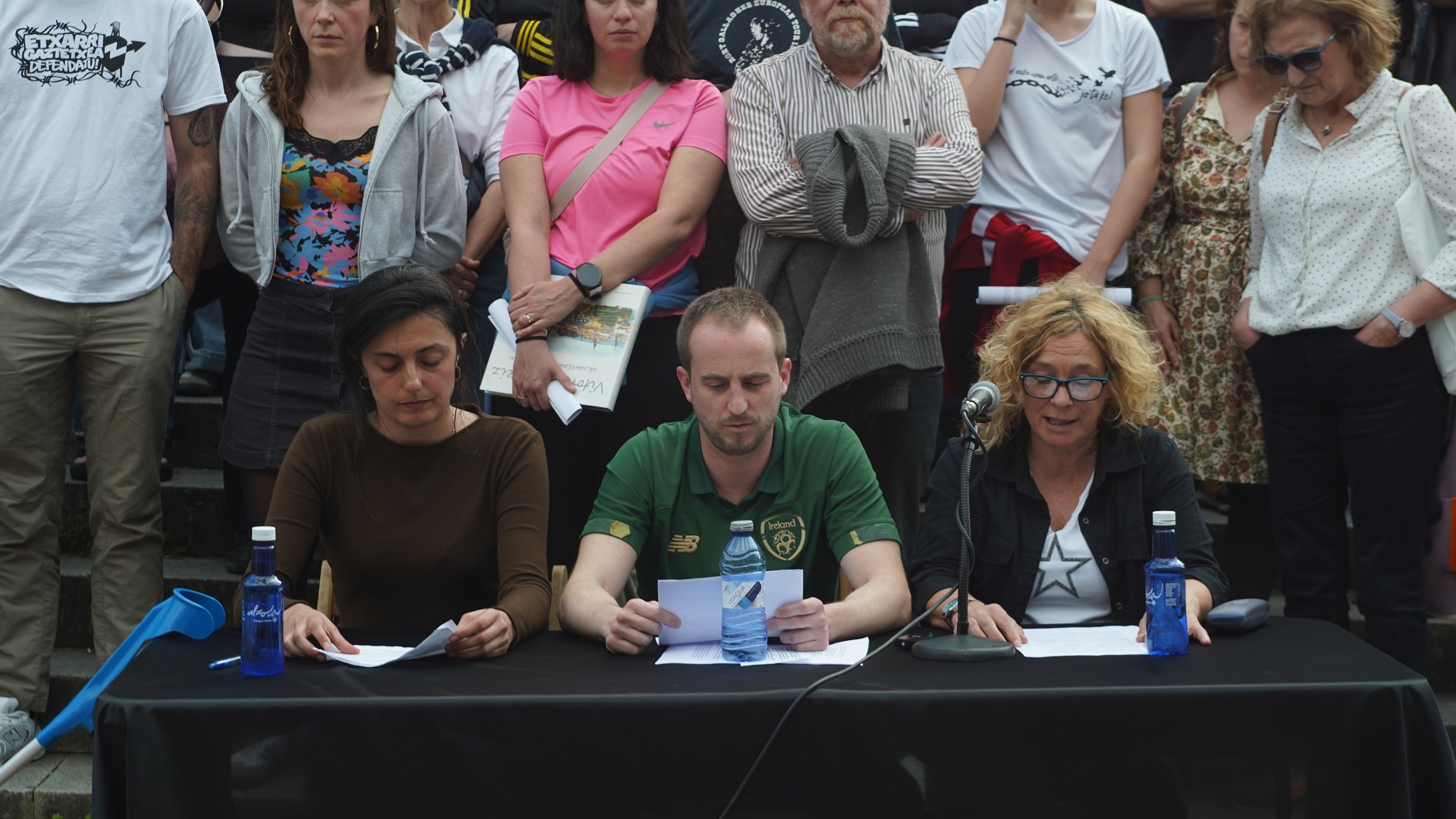
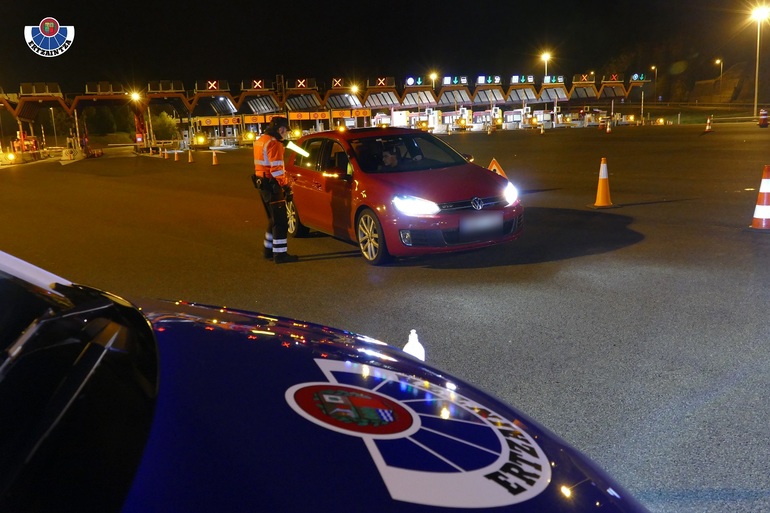
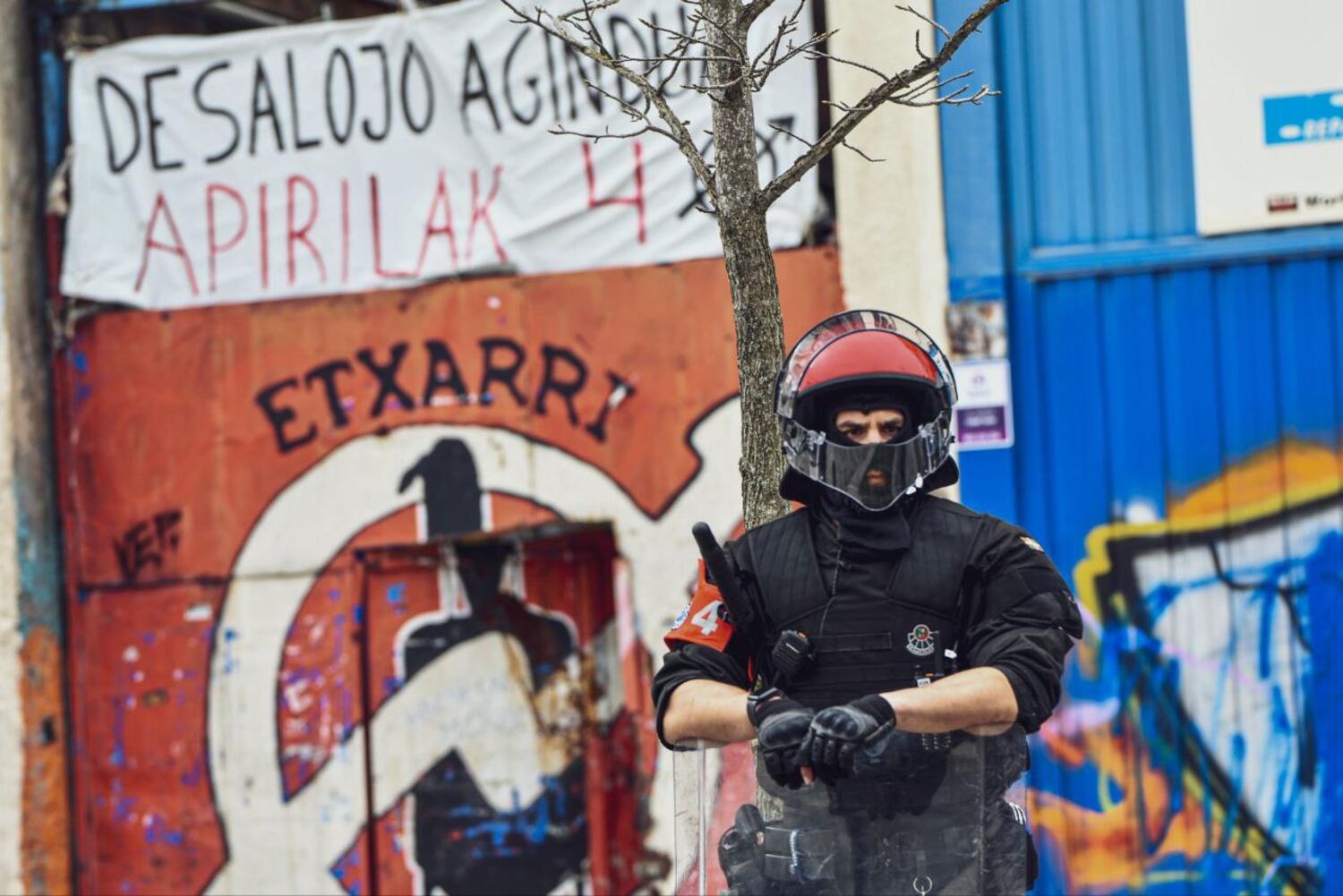
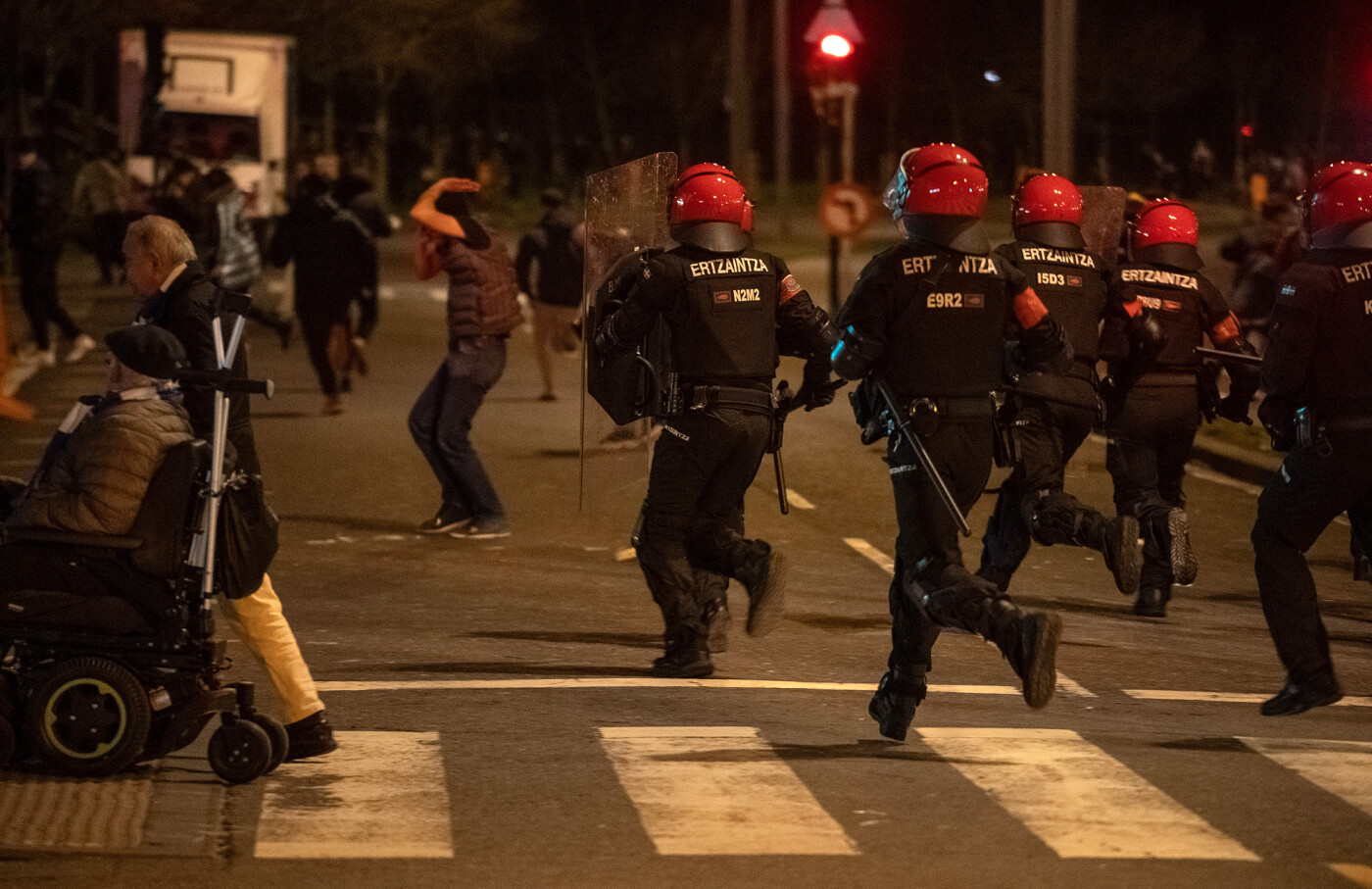
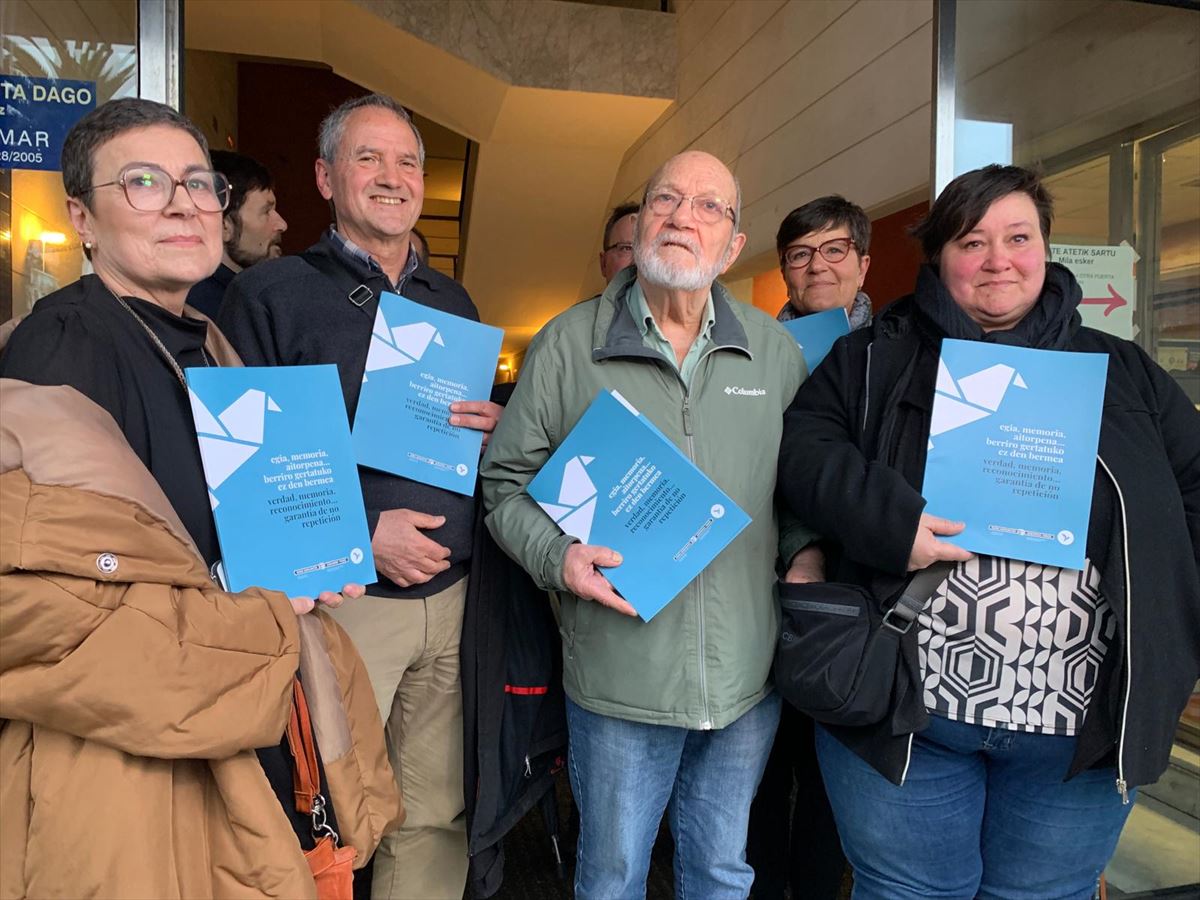

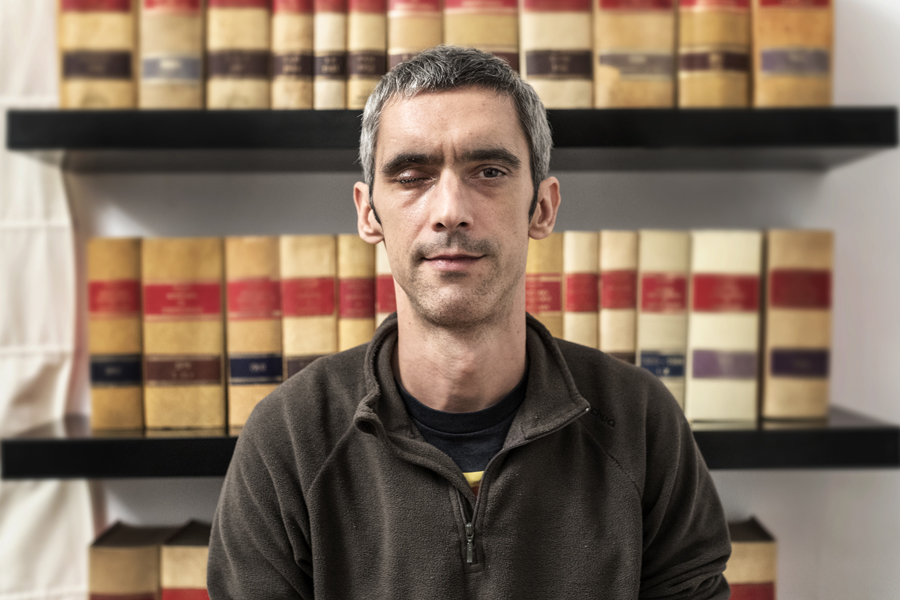

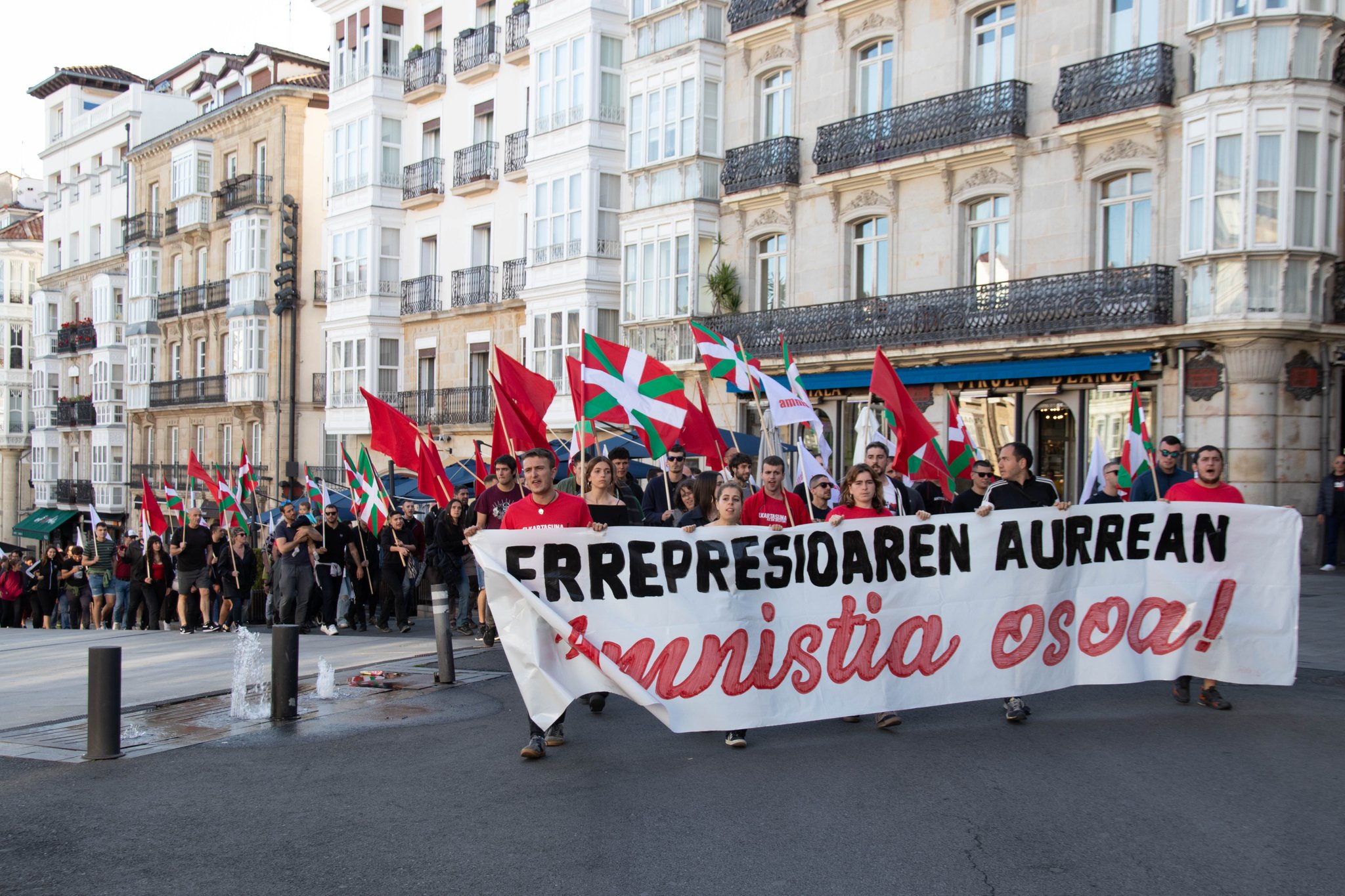
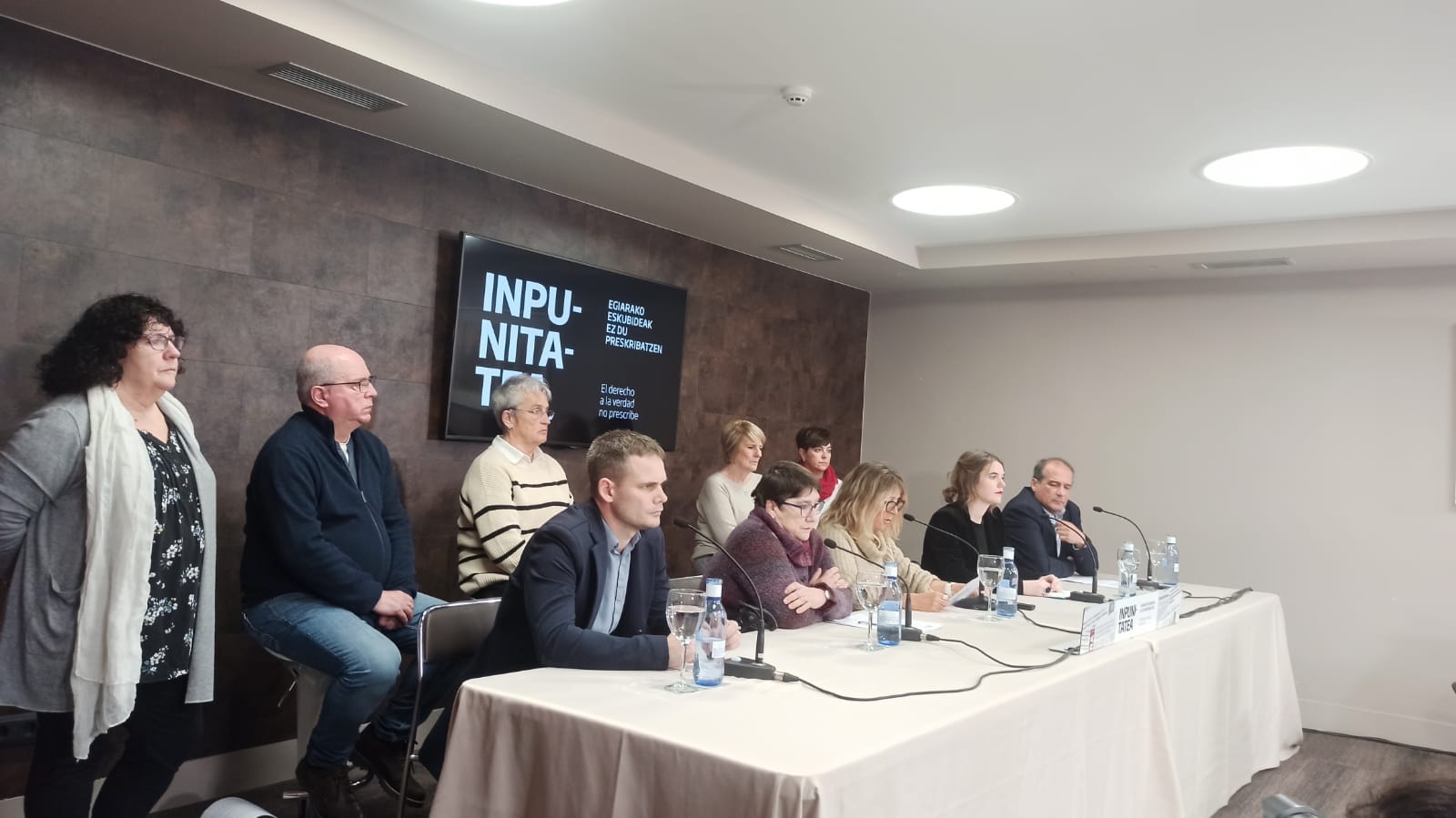
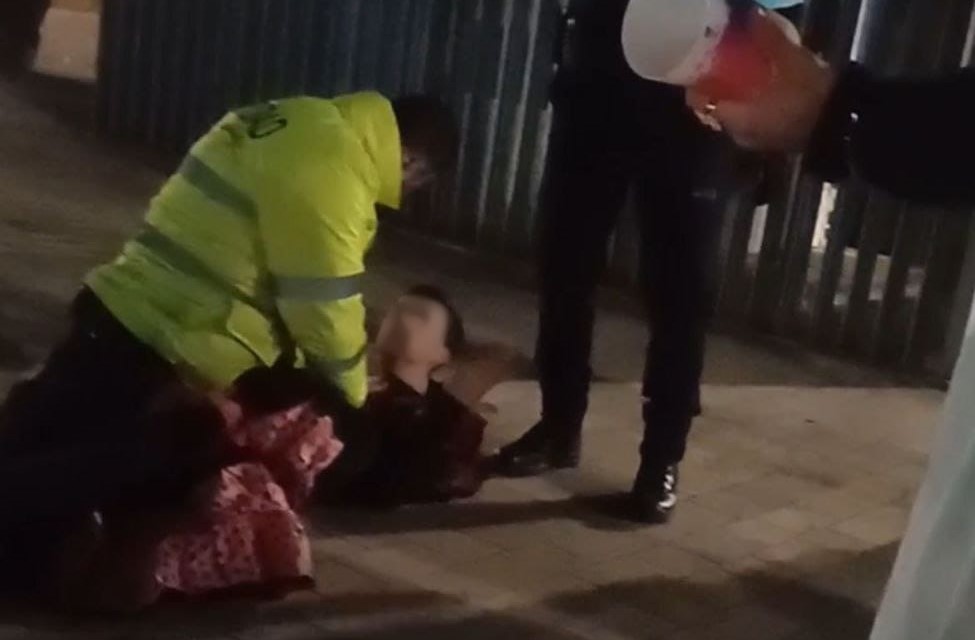
.jpg)
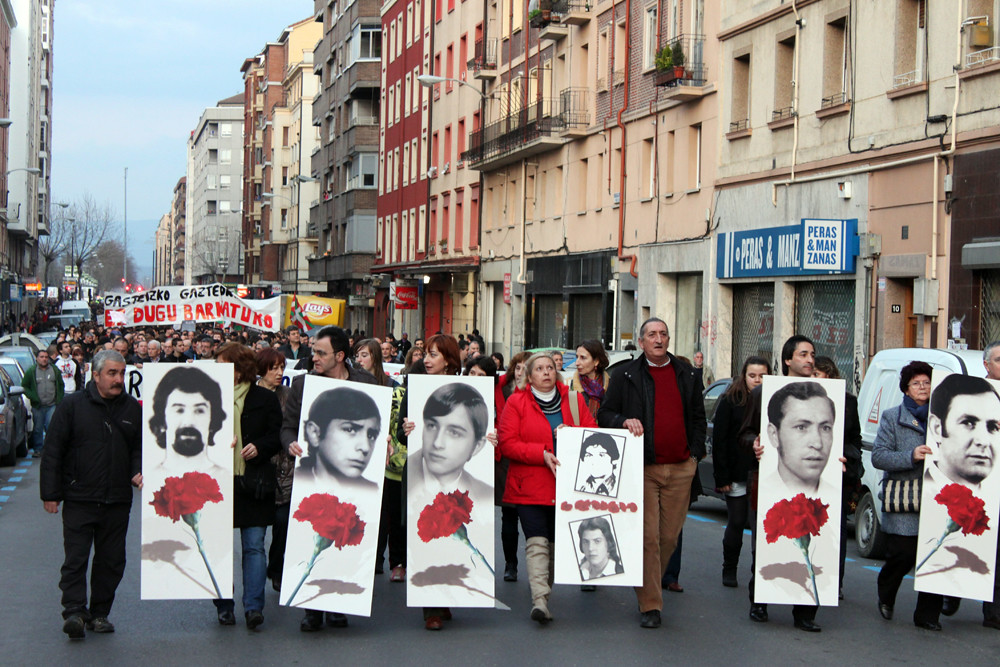
.jpg)
